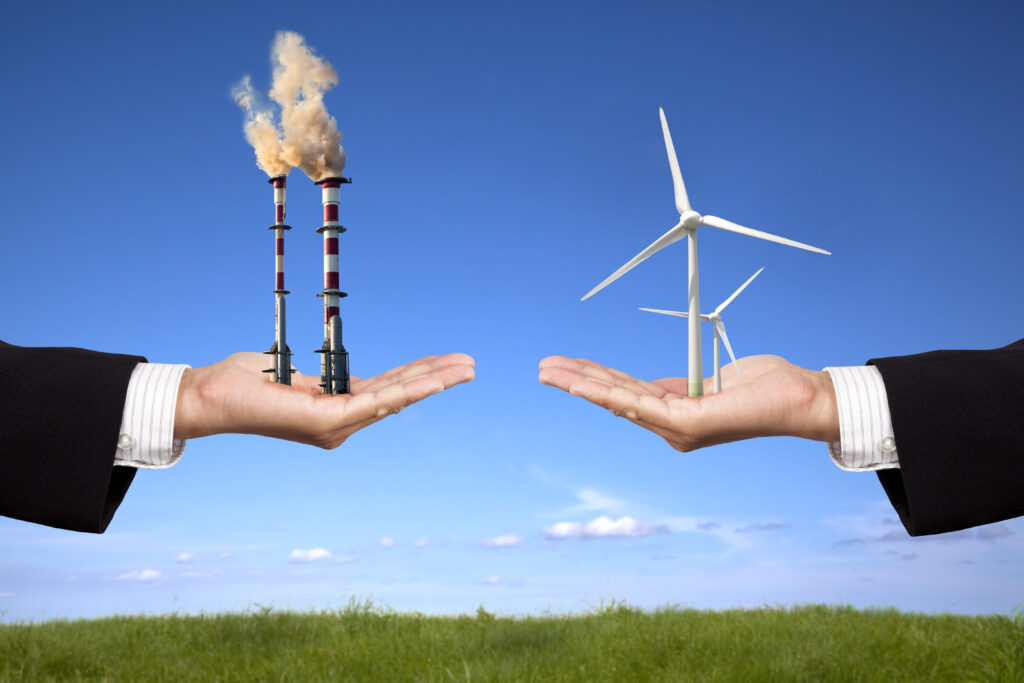Why haven t we switched to renewable energy?

In today's world, the need to transition from non-renewable energy sources to renewable ones has become increasingly crucial. While renewable energy offers numerous benefits and potential solutions to pressing global issues, its widespread adoption has been slow. This article aims to explore the reasons behind the persistent use of non-renewable energy and the challenges associated with making the switch.
The Benefits of Renewable Energy
Renewable energy, such as solar, wind, hydro, and geothermal power, presents a plethora of advantages. Firstly, it is an abundant and inexhaustible source of energy, reducing our dependence on finite resources like fossil fuels. Secondly, renewable energy production emits significantly fewer greenhouse gases, mitigating climate change and its detrimental effects. Additionally, utilizing renewable energy sources promotes energy independence, as countries can generate their own power domestically, reducing reliance on imports.
The Challenges of Transitioning to Renewable Energy
Despite the undeniable benefits, transitioning to renewable energy faces several challenges. One significant obstacle is the existing infrastructure built around non-renewable energy sources. Power plants, grids, and transportation systems are primarily designed for fossil fuel utilization, making it difficult and costly to integrate renewable energy technologies.
Government Policies and Regulations
The lack of supportive policies and regulations is another hurdle. Governments play a crucial role in encouraging the adoption of renewable energy by implementing incentives, subsidies, and favorable regulations. However, inconsistent policies, lack of long-term planning, and political factors can hinder progress and create uncertainty for investors in the renewable energy sector.
Economic Factors
Economic considerations also play a significant role in the slow transition to renewable energy. While renewable energy technologies have become more affordable over the years, initial setup costs can still be higher compared to non-renewable alternatives. Additionally, the fossil fuel industry has well-established financial interests and lobbying power, which can influence decision-making processes and impede the transition towards renewable energy.
Technological Limitations
Technological limitations pose challenges to the adoption of renewable energy. Storage and transmission of renewable energy can be complex and require further advancements for efficient and reliable integration into existing systems. Research and development in renewable energy technologies are necessary to overcome these limitations and ensure a seamless transition.
Changing societal attitudes and cultural norms can also hinder the switch to renewable energy. People may be resistant to change, preferring the familiar and comfortable ways of utilizing non-renewable energy. Additionally, lack of awareness and misconceptions about renewable energy can lead to skepticism and resistance from the public.
Environmental Concerns
Ironically, concerns about the environmental impact of renewable energy can also slow down its adoption. Certain renewable energy technologies, such as large-scale hydropower, can have negative ecological consequences, including habitat destruction and alteration of water systems. It is important to carefully evaluate the environmental impact of different renewable energy options and prioritize those with minimal ecological footprint.
Conclusion
Transitioning to renewable energy is crucial for a sustainable future. While the benefits are evident, several barriers exist that impede its widespread adoption. Overcoming challenges related to infrastructure, policies, economics, technology, and social factors requires collaborative efforts from governments, industries, and individuals. By addressing these challenges head-on, we can accelerate the transition to renewable energy and create a cleaner, more sustainable world for future generations.
Frequently Asked Questions
1. What is renewable energy?
Renewable energy refers to energy derived from sources that can be naturally replenished, such as sunlight, wind, water, and geothermal heat. It is a sustainable alternative to non-renewable energy sources like fossil fuels.
2. Why haven't we fully transitioned to renewable energy?
The transition to renewable energy faces challenges such as existing infrastructure, lack of supportive policies, economic considerations, technological limitations, social and cultural factors, and environmental concerns.
3. Are there any financial benefits to using non-renewable energy?
Non-renewable energy sources like fossil fuels have historically provided cheap and easily accessible energy. However, the long-term environmental and health costs associated with their use outweigh the short-term financial benefits.
4. How can individuals contribute to the shift towards renewable energy?
Individuals can contribute to the shift towards renewable energy by adopting energy-efficient practices, investing in renewable energy sources like solar panels, supporting policies and initiatives that promote renewable energy, and raising awareness about its benefits.

Leave a Reply